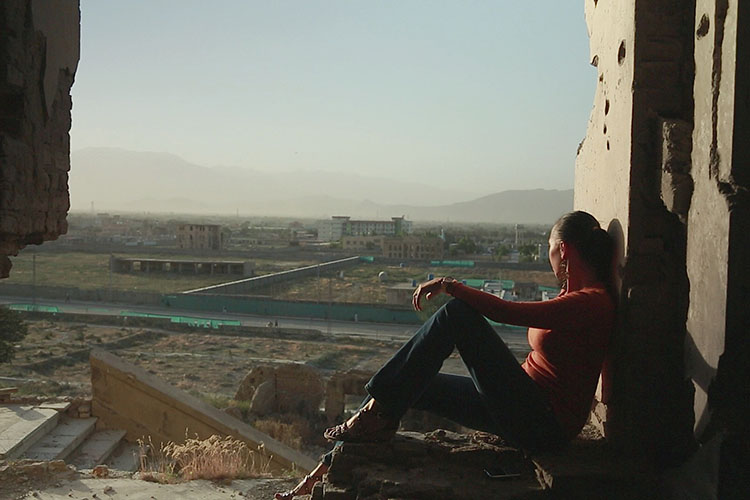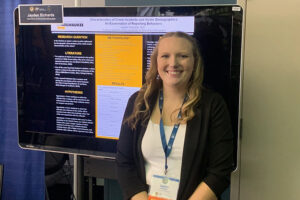In March 2015, Farkhunda Malikzada’s death caught the world’s attention. Just 27 years old when she was falsely accused of burning the Quran, the Afghan woman died at the hands of a vicious, all-male mob that beat her, set her on fire and threw her in the Kabul River.
In a Kabul courtroom, Malikzada’s family was represented by UWM alumna Kimberley Cy Motley, who became the first foreign lawyer working in Afghanistan when she signed on to a State Department legal education program in 2008.
“As I travel, I see how abysmal the legal system is in so many countries,” Motley told UWM Alumni. “I want to raise the capacity of legal representation worldwide while continuing to educate needy people of their rights. For as abysmal as it can be, you never give up hope. Where would American women be if we had given up hope in our fight for equal rights?”
Motley’s quest for justice and human rights in some of the world’s most remote courtrooms and corrupt prisons began in Milwaukee, where she earned four college degrees in six years, including bachelor’s and master’s degrees in criminal justice from the Helen Bader School of Social Welfare.
She’ll talk about her thriving international law practice and her Milwaukee roots on Oct. 15, when she returns to her alma mater as keynote speaker of an anniversary fundraiser for Helen Bader School of Social Welfare student scholarships.
Of the 49 suspects tried in Malikzada’s death last spring, four were sentenced to die. But the men’s sentences were promptly overturned behind closed doors.
“It’s depressing, but fighting a corrupt criminal justice system keeps pulling me back,” Motley said.
About 30 percent of Motley’s practice is pro bono work on behalf of women and girls like Malikzada, who are trapped in a criminal justice system that imprisons and even executes them for “moral crimes” like fleeing forced marriages, being forced into prostitution or becoming the victim of domestic violence or rape.
This work has lead to some landmark rulings for her clients. “My work has lead to decriminalizing ‘running away’ as a crime,” Motely said.
Her practice has also captured the attention of The New York Times, Vanity Fair and the BBC and became the focus of Motley’s TedTalk, “How I defend the rule of law.” The work has earned her something even more rare – acceptance in the country she lives in nearly nine months out of the year. “Afghans accepting me, that’s progress,” Motley said.
The remainder of Motley’s caseload is comprised of non-Afghan defendants in Kabul. Of her 90 percent success rate in Afghan courtrooms, Motley said the sweetest victories, surprisingly, are the ones she earns for her foreign clients.
“That person can get the hell out of [Afghanistan],” she said.
An Afghan woman, even when she wins in the courtroom, returns to a society in which systemic victories for human rights are yet to be achieved.
Motley grew up in Milwaukee’s Berryland Housing Development and attended Whitefish Bay High School. After she completed her education with a Marquette Law degree, she became a Milwaukee public defender.
Her time at UWM was marked by “extremely encouraging” faculty and staff. She had two of her three children while a student. Her social welfare education also made a difference. “At UWM, I learned how to research social issues and the importance of publishing. That definitely helped me in Afghanistan, especially when I performed an assessment of their juvenile justice system,” she said.
Afghanistan may be just the first stop of Motley’s larger journey. Word has spread of her passion and unique capabilities, and she is expanding her services and mission to India, Uganda, Bolivia and more.
Travel won’t be required for anyone who wants to follow Motley’s international quest for justice. A Danish-made documentary, “Motley’s Law,” will premiere at the Chicago International Film Festival on Oct. 20, and a TV series based on her life is currently in the works.






